The square-shaped room, located between the
frigidarium
and the
tepidarium
, is decorated with a mosaic enlivened by the presence of five figures, arranged on two different levels.
In the upper one, a man with a particularly athletic build stands out, perhaps the dominus of the villa,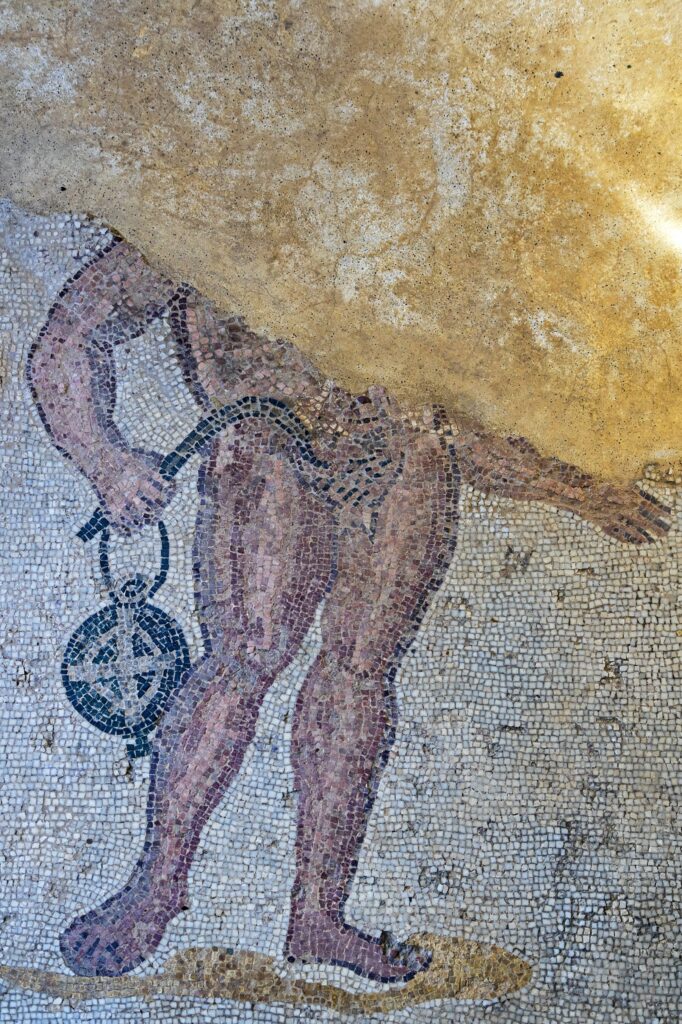 flanked by two young servants; one engaged in a massage,
flanked by two young servants; one engaged in a massage,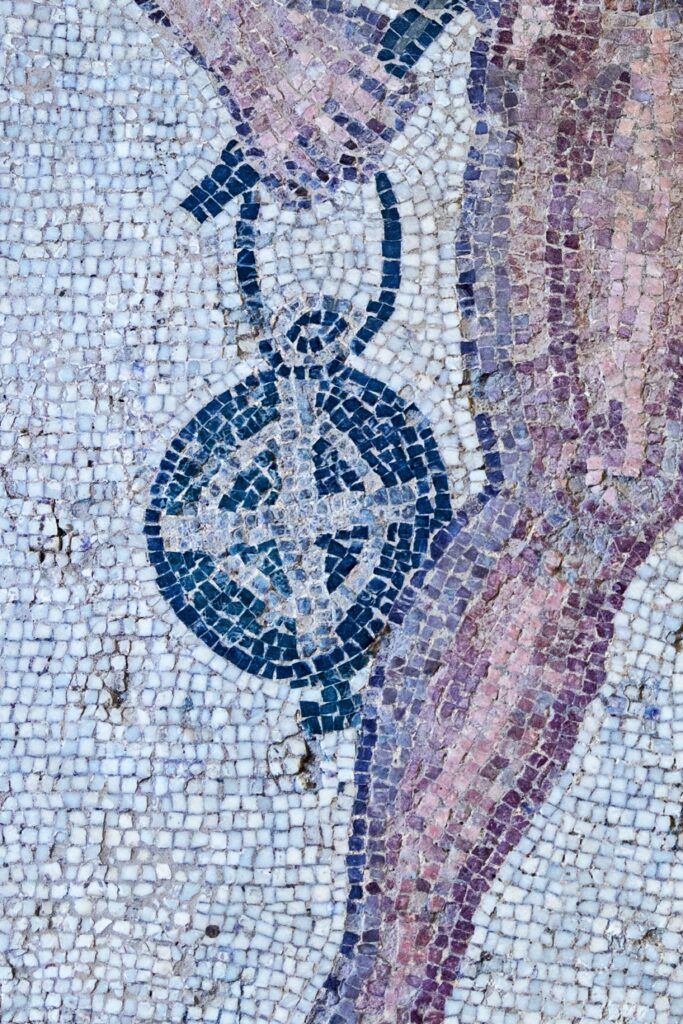 the other with the related tools,
the other with the related tools, 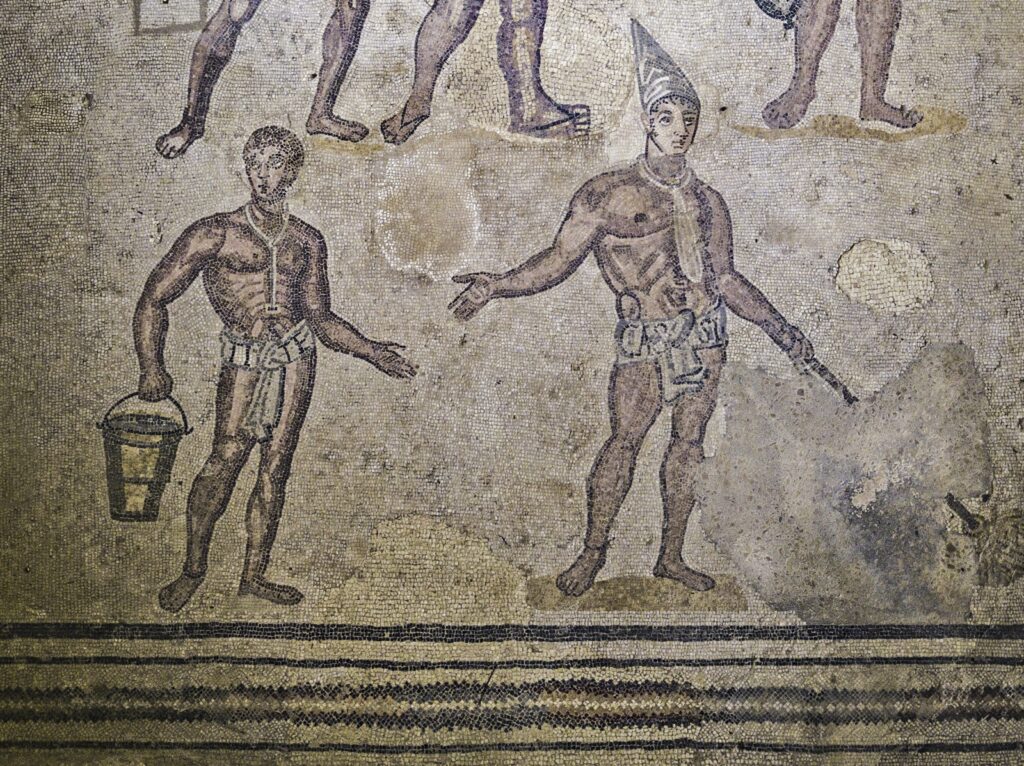 a
strigil
a
strigil
and a round vial containing an aromatic ointment.
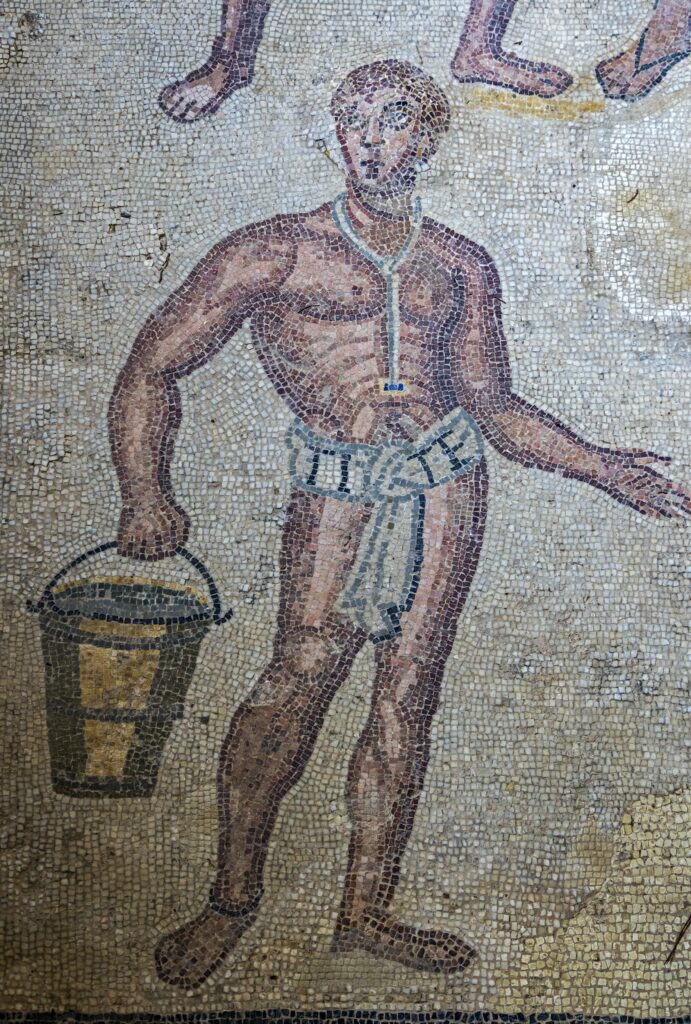 In the area below the mosaic, two other servants can be seen, whose name, shown in the vocative, is highlighted on the band of fabric covering their sides: Tite and Cassi.
In the area below the mosaic, two other servants can be seen, whose name, shown in the vocative, is highlighted on the band of fabric covering their sides: Tite and Cassi. 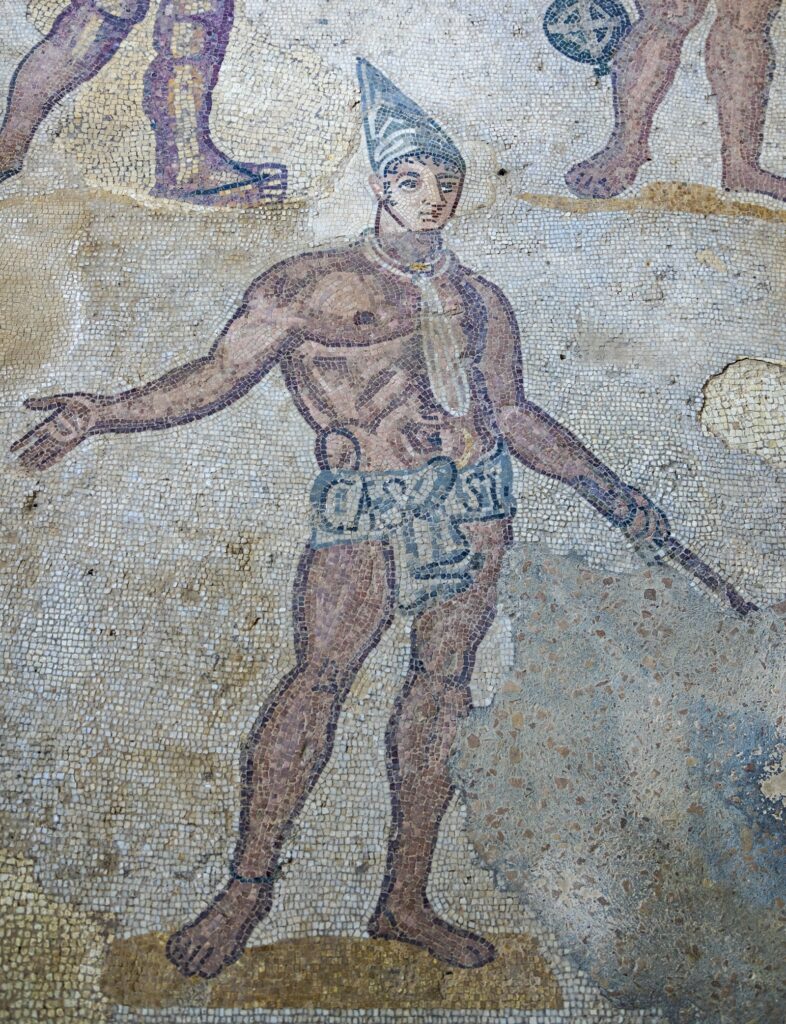 Both are equipped with items used for massage. Titus has cream, the lomentum, inserted in a bucket,
Both are equipped with items used for massage. Titus has cream, the lomentum, inserted in a bucket, 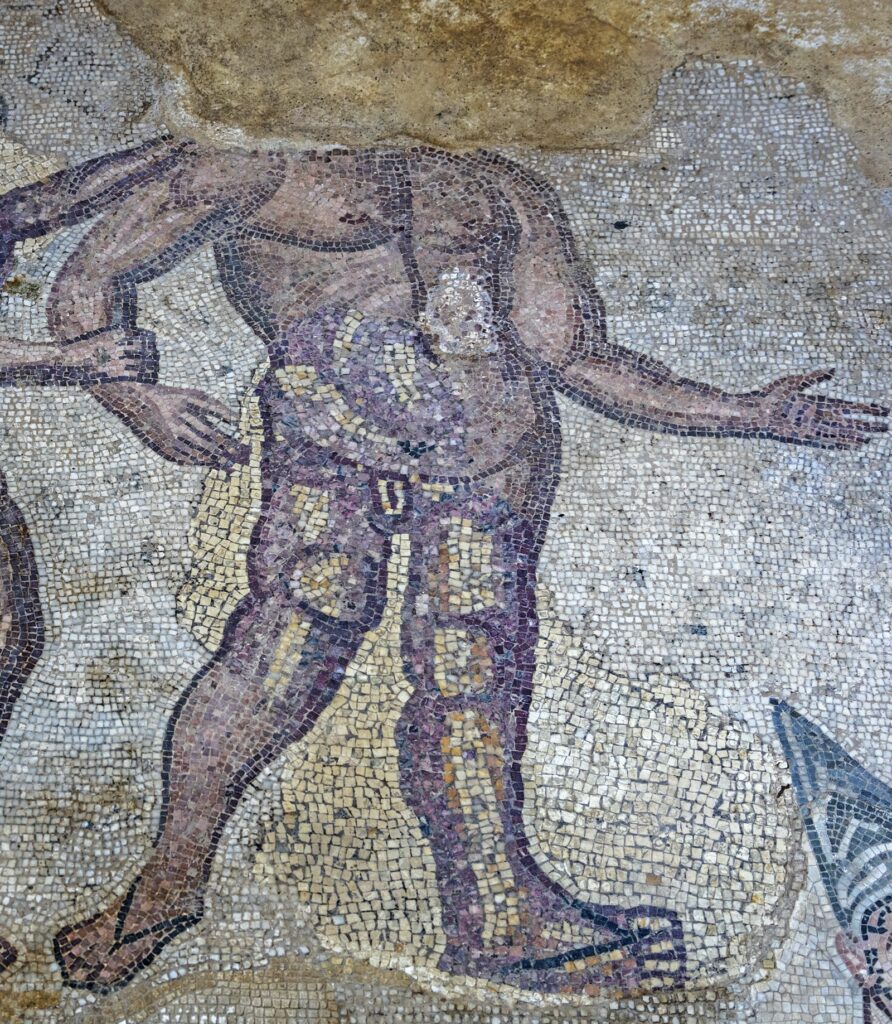 while Cassius, perhaps of Syrian origin due to his pointed headgear, is depicted with a brush and lotions,
while Cassius, perhaps of Syrian origin due to his pointed headgear, is depicted with a brush and lotions, 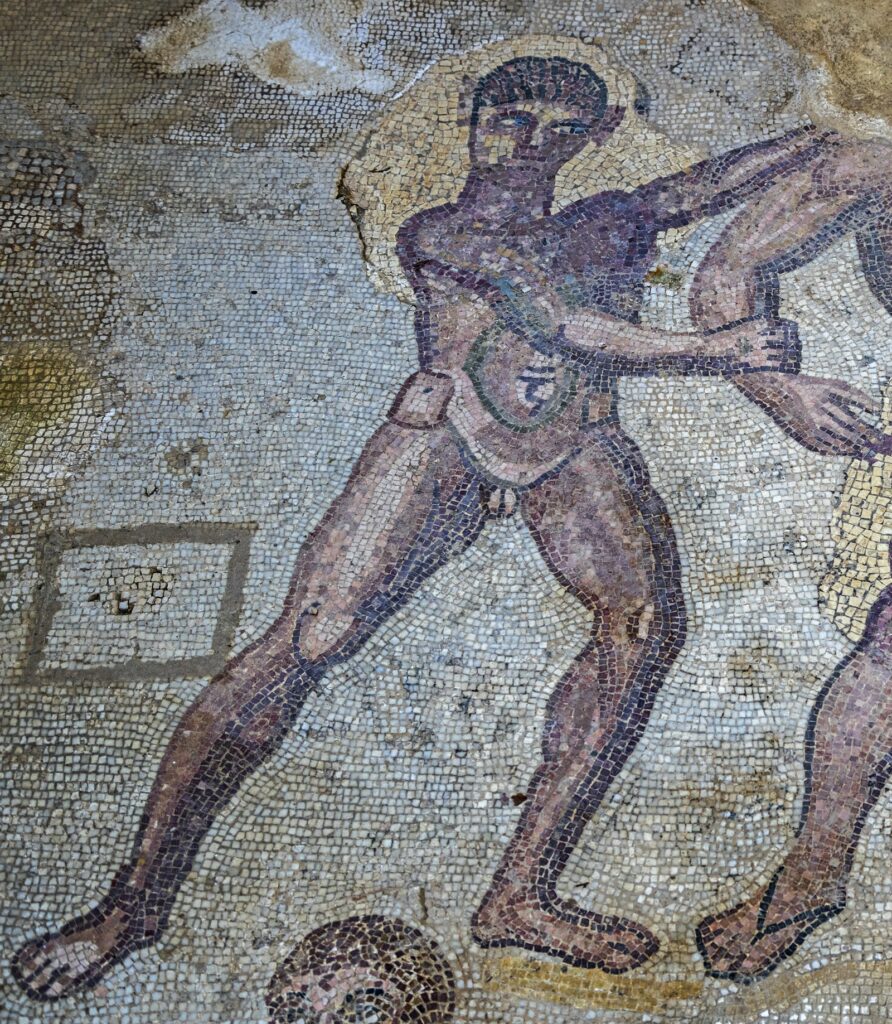 to perfume his master after the thermal bath.Roman culture gave great importance to bodily care and anointing, generally carried out at the end of the sequence of hot and cold baths.
to perfume his master after the thermal bath.Roman culture gave great importance to bodily care and anointing, generally carried out at the end of the sequence of hot and cold baths.